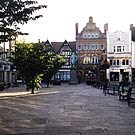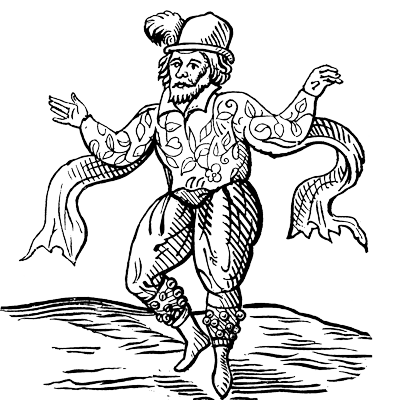Marketplace

Base layers
Data layers

Venue Type & Location
Site Name: Marketplace
Location: Shrewsbury
County: Shropshire
Location Type: Town - in town at determined location
Overview
No longer the market centre of the town, the old marketplace remains an open space adjacent to the High Street, with many alterations since the 16th c. Corn was sold in the protected lower open arcaded section of the late 16th c. market hall, while green goods were sold in the open air to the N. Hence the 2 names, Cornmarket and Applemarket, used for essentially the same area.
The E block of buildings is modern and on the W side the lower 2 floors of the Plough Inn are probably 16th c., but 18th and 19th c. buildings stand on either side. The demolished Booth Hall originally stood at the N end of the market. The statue of Clive of India stands on the site with Owen's Mansion visible beyond, though it would have been on a narrow street running parallel previously. The square therefore would have been considerably smaller than at present, and easily congested; even now it is intimate.
Performance History
Outdoor performances are recorded in the late 16th c. in the Applemarket or Cornmarket square. These performances likely used the Booth Hall as a backdrop.
Current Status
The market hall is currently in use as a magistrates' court. The open square remains a pedestrian area with shops and offices lining its perimeter.
History of the Venue
1596 The market hall was built replacing two earlier timber houses (1567) that stood on the same site and which also served the same purpose.
Record Source
REED Shropshire 1.238, 247
Bibliographic Sources
-
Champion, Bill. Everyday Life in Tudor Shrewsbury. Shrewsbury: Shropshire Books, 1994.
-
Pevsner, Nikolaus. Shropshire. The Buildings of England. Harmondsworth, Midd: Penguin Books, 1958.
-
Speed, John. The Theatre of the Empire of Great Britaine. London: I. Sudbury and G. Humble, 1611.





